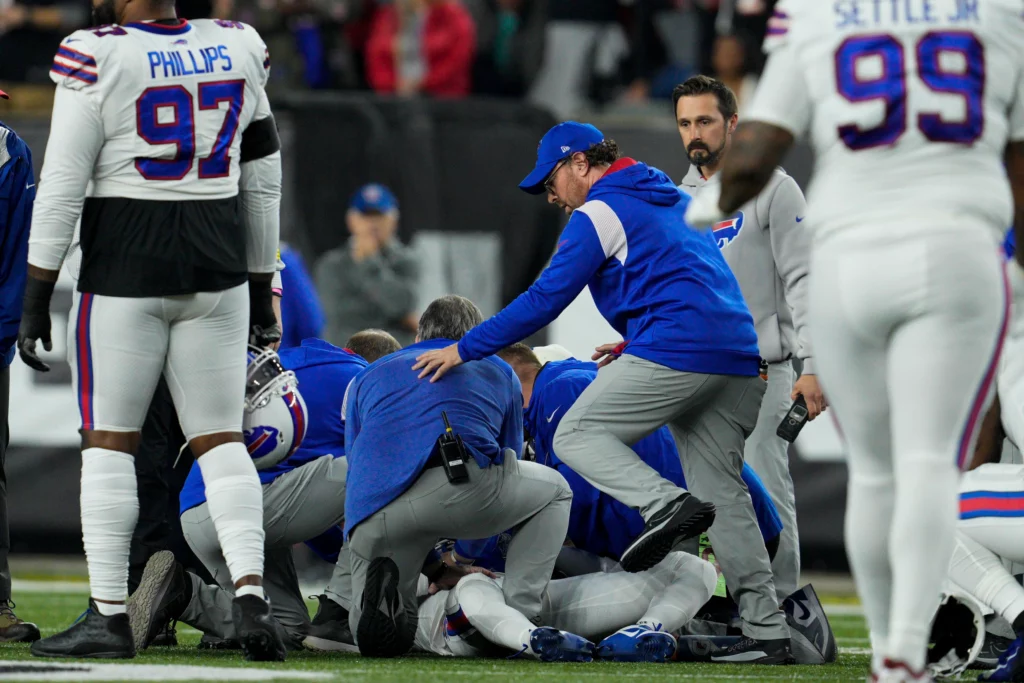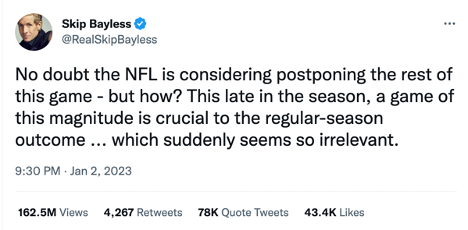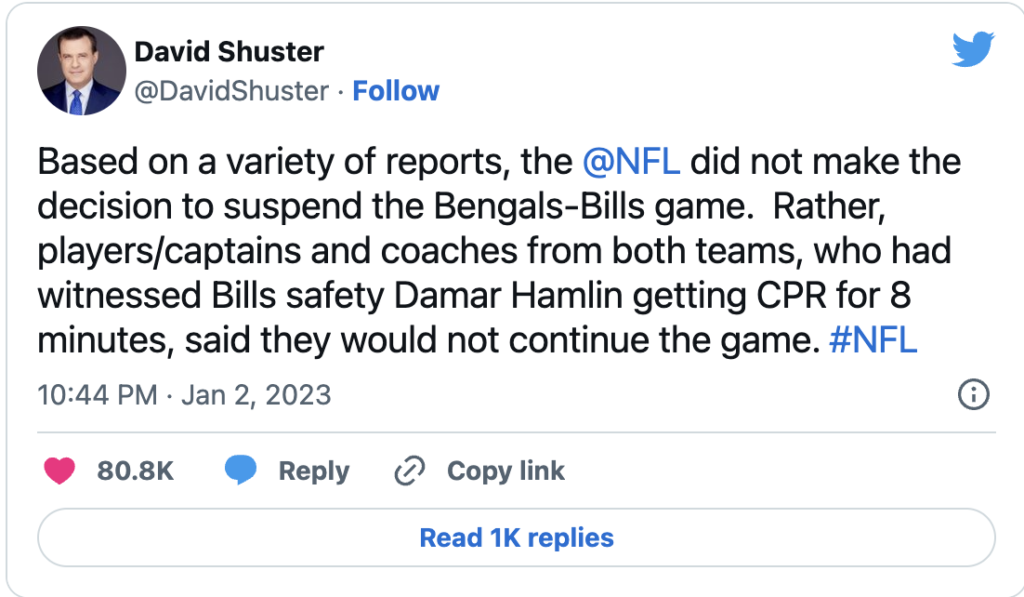Written by Ray Lewis, June 5, 2023

Monday night football – an American tradition. This January 3rd game features the Buffalo Bills and the Cincinnati Bengals. With 5:58 left on the clock in the first quarter, the world stands still. Damar Hamlin, safety for the Buffalo Bills, collapses mid-game. The fan filled stadium silenced. The anxiety is palpable. Viewers at home, mortified by the scene. A game we love turned into life, or death, before our very own eyes. A star athlete became human again. Thanks to first responders, Damar is revived and taken off the field. His heart stopped, on the field, on live television. While these events were shocking, this is not where the controversy stands. Skip Bayless, a well-known sports broadcaster, tweeted during these events.

The world wondered if this 24-year-old, Hamlin, would live. A prominent sports media figure worried about the game being finished. Skip Bayless simply illustrates the issue with modern sports media – athletes are no longer seen as human. Agape is an ethics principle built on the unselfish love of others. When the game stops, do we care more about the final score than person impacted. When did we forget they are human? Does scoring the winning touchdown matter more than a beating heart? The insensitivity of this post demonstrates that we have dehumanized athletes.

Bayless was not the only person that received criticism for his response. According to a tweet from writer and producer, David Shuster, the NFL did make the decision to postpone the game. It was determined by the players refusal to retake the field. What does this say about the National Football League? Player safety has taken a backseat to their pocketbooks. So how does the most popular sport in America get here you ask? Fantasy football has largely attributed this.
Modern sports revolved around fantasy sports leagues. Fantasy football has been a major shift to the way modern athletics are viewed. Fans now have more at stake. We feel connected to these athletes at greater depths, but have we lost touch of the fact that they are human. When an athlete is injured, how does it impact us? It is estimated that Fantasy Football is a 70 billion dollar market. This largely attributes athletes being seen as a stat line instead of a living, breathing being. I’ve seen it time and again: An injury to a player evokes moans and sometimes profanity in the moment. But it is not out of concern for the athlete on the field. It is because the player — often a quarterback, a running back or a receiver — is central to someone’s fantasy team, Rhoden reports in his New York Times article in 2015.

People invest a lot in professional sports teams. Whether it is betting, purchasing tickets and merchandise, or playing fantasy sports leagues, sports are a lifestyle. Fans feel like they are part of something. They invest their identities in these athletes’ performances. The same goes for athletes. Many spend their whole lives working for an opportunity to make it pro. Athletes often enter the professional ranks at a young age. They risk they physical beings to entertain us daily. But when an athlete faces a career ending injury, we care more about the game being played than their safety?
If you’re a sports fan, ask yourself these questions. When is the last time you have learned something about your favorite athlete’s life? Do you know anything about your athlete outside of their stats? How many points did they score? Whether they will be traded? Media loves athletes when they perform. After a big game, they are paramount. Poor performance = headline news. Seldom do you hear about their real lives. This devalues their humanness.
Next time you see an athlete getting injured, I want you ask yourself this. Would you want the game to keep going if that was your son or daughter? What about your best friend? If they were laying on that field fighting for their lives, would you be waiting for the next whistle? It is important for media to remember – it’s okay to reschedule. We can wait to report or post on social media. Fans and media should remember that athletes are people. When you put on their jersey, brag on their career performances or boast about last nights win; remember that is a person – just like you – on the other side of the tv. Sports media – it’s time we start making athletes human again.
